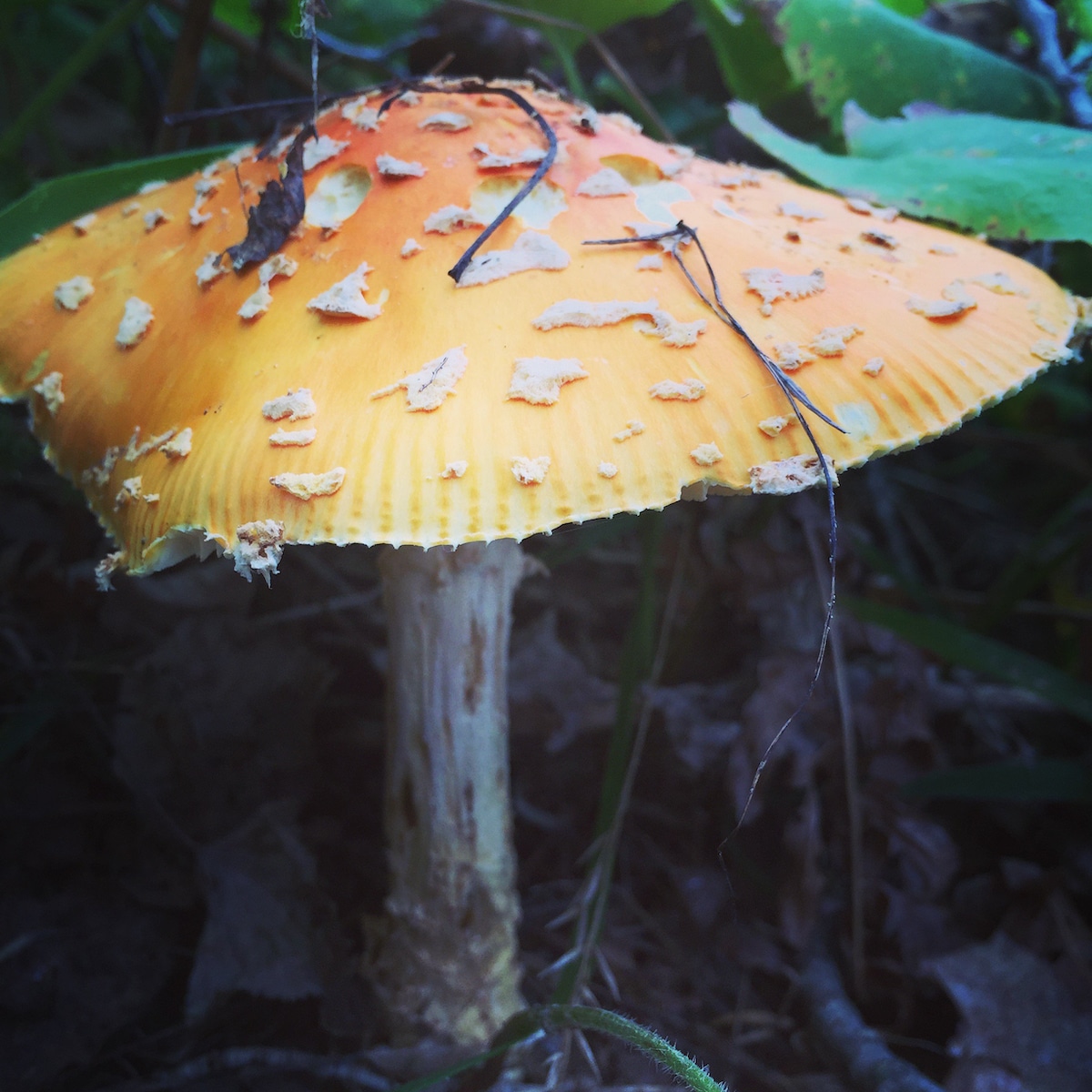Climate Crisis Is Breaking Down Fungi-Tree Communication Networks, Study Finds

 Why you can trust us
Why you can trust us
Founded in 2005 as an Ohio-based environmental newspaper, EcoWatch is a digital platform dedicated to publishing quality, science-based content on environmental issues, causes, and solutions.
Fungi are like no other species on Earth. They’re not plants or animals, they thrive in damp, dark environments and have an otherworldly feel. And while their unique kingdom is the largest of any on the planet, more than 90 percent remain unidentified.
Among mushrooms’ many unique characteristics, they reproduce by glowing in the dark. Thanks to the same compounds that give fireflies and some marine creatures their glow, mushrooms light up the night to attract insects, who then spread their spores throughout the forest, according to BBC Earth.
Mushrooms live a symbiotic life with trees. Ectomycorrhizal fungi grow on tree roots, providing trees with essential nutrients like phosphorus and nitrogen. Meanwhile, fungi are getting carbon that the trees convert into sugars during photosynthesis.
A new study by researchers from the University of Minnesota and Syracuse University explores the effects of climate change — like higher temperatures and more severe drought — on fungi and the underground ectomycorrhizal networks that fungi form in order to enable the transfer of minerals and water between trees, a press release from Syracuse University said.
“The interaction networks formed by ectomycorrhizal fungi (EMF) and their tree hosts, which are important to both forest recruitment and ecosystem carbon and nutrient retention, may be particularly susceptible to climate change at the boreal–temperate forest ecotone where environmental conditions are changing rapidly,” the researchers wrote in the study.
The study, “Climate change–induced stress disrupts ectomycorrhizal interaction networks at the boreal–temperate ecotone,” was published in the journal Proceedings of the National Academy of Sciences.
For the study, the research team exposed temperate and boreal tree species to higher temperatures and drought in order to examine how they and their fungi partners would respond, the press release said.
The boreal ecosystem exists in the northernmost forests of the planet, while the temperate ecosystem can be found between the boreal and tropical regions. Ectomycorrhizal fungi colonize tree roots of many species where these two ecosystems meet. A mixture of temperate trees can be found in this area, like oak and maple, as well as boreal trees like evergreens.
The research team found that the combination of increased temperatures and water stress will likely cause major disruptions to ectomycorrhizal networks that may damage forest function and resilience.
The researchers conducted their study in Minnesota at an ongoing climate change experiment, Boreal Forest Warming at an Ecotone in Danger (B4WARMED). The long-term experiment has temperate and boreal tree species that have been exposed to the environmental extremes of warming and drought.
Leader of the study Christopher W. Fernandez, an assistant professor of biology in the College of Arts and Sciences at Syracuse University, said the findings of the study showed that the composition of ectomycorrhizal fungal species shifts markedly when exposed to climate change.
The research team detected a shift from mature forest species with a high biomass mycelium — the hair-like body of the fungus that goes on exploratory missions through the soil — toward species with low biomass usually found in ecosystems that have been highly disrupted.
“There is a supported hypothesis that these low biomass species probably do not provide the host much benefit in terms of nutrition compared to high biomass species,” Fernandez said in the press release. “We found that the networks formed by these fungi that ‘connect’ the trees shifted from relatively complex and well-connected networks to ones that are simpler with less connections.”
The study’s authors said the shifts were closely related to tree hosts’ performance and ability to use photosynthesis to convert carbon into sugars and oxygen.
“Climate change is reducing the amount of carbon the trees fix and likely has cascading effects on how much carbon they can provide to their ectomycorrhizal fungi,” Fernandez said. “This is likely causing a shift towards low biomass species, resulting in the breakdown of networks between trees.”
The researchers said the next step is to connect ectomycorrhizal network changes to carbon and nutrient cycling and other ecosystem processes to see how well they handle climate change.
Subscribe to get exclusive updates in our daily newsletter!
By signing up, you agree to the Terms of Use and Privacy Policy & to receive electronic communications from EcoWatch Media Group, which may include marketing promotions, advertisements and sponsored content.

 233k
233k  41k
41k  Subscribe
Subscribe 




